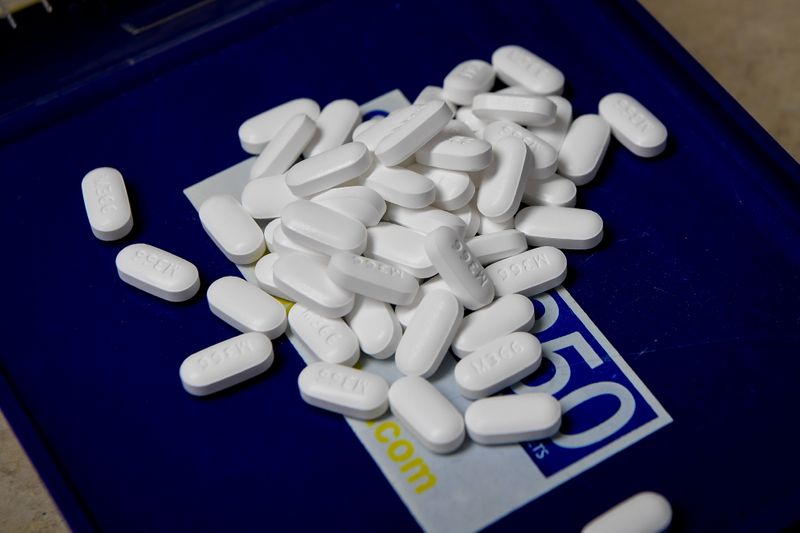By Nate Raymond
(Reuters) -Regional pharmacy chain operator Giant Eagle Inc on Friday said it had agreed to settle lawsuits accusing it of fueling the opioid epidemic in several Ohio communities, including two counties that had taken it and three larger rivals to trial.
The settlement came during the fourth week of a trial in federal court in Cleveland over claims by the Ohio counties of Lake and Trumbull against Giant Eagle, Walgreens Boots Alliance (NASDAQ:WBA) Inc, CVS Health Corp (NYSE:CVS) and Walmart (NYSE:WMT) Inc.
The settlement resolves claims against Giant Eagle in 10 lawsuits by those counties and others in Ohio, the company and the plaintiffs' lawyers said in a joint statement. It operates grocery stores and pharmacies in five states including Ohio.
Financial terms were not disclosed.
"While Giant Eagle denies it was a cause of the opioid crisis, it recognizes the severity of the crisis, its impact on the public and the hard work of the public officials working to address the harms," the company said.
The case underway in Ohio is first trial the pharmacy chains have faced in nationwide litigation over an opioid abuse epidemic that U.S. government data shows led to nearly 500,000 overdose deaths from 1999 to 2019.
More than 3,300 cases have been brought largely by state and local governments against pharmacies, drugmakers and drug distributors.
The Ohio counties claim the pharmacies failed to prevent excessive amounts of opioid pills from flooding their communities or identify "red flags" of misuse. The companies deny wrongdoing.

The three largest U.S. drug distributors - McKesson Corp (NYSE:MCK), Cardinal Health Inc (NYSE:CAH) and AmerisourceBergen (NYSE:ABC) Corp - and drugmaker Johnson & Johnson (NYSE:JNJ) in July proposed paying up to $26 billion to settle cases against them.
A bankruptcy judge in August approved a settlement by OxyContin maker Purdue Pharma LP and its wealthy Sackler family owners that the company values at more than $10 billion.